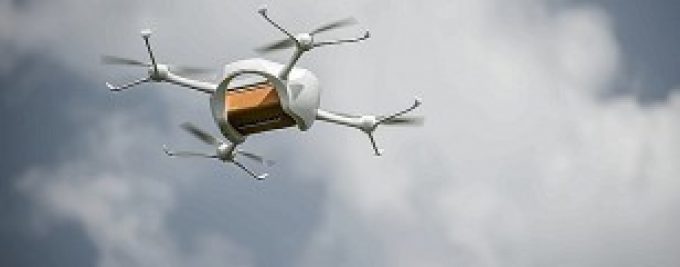
US drone manufacturer Matternet is preparing to carry out payload trials with Swiss Post and Swiss WorldCargo for the first time in the next two months.
The pilot project between the partners moves into its second phase follows the success of drone-only trials in Switzerland last summer, Oliver Evans, head of global business development for Matternet, told The Loadstar.
“The Swiss Civil Aviation Authority certified specific routes of 10-15km from Bellechasse, an airfield near Geneva used by private flyers, and we completed a number of missions without incident,” he said. “We’re now in the planning stage of repeating the exercise with real payloads of up to 1kg.”
 Mr Evans (pictured) was chief cargo officer at Swiss International Air Lines for 12 years before joining Matternet last year. He believes deliveries by drone will soon become commercial reality despite regulators’ concerns about the activities of hobbyists.
Mr Evans (pictured) was chief cargo officer at Swiss International Air Lines for 12 years before joining Matternet last year. He believes deliveries by drone will soon become commercial reality despite regulators’ concerns about the activities of hobbyists.
The US Federal Aviation Administration (FAA) has received more than 1,000 reports of drone crashes and near-misses with aircraft over the last 18 months. The FAA missed a US Congesss deadline of September 2015 to finalise rules for commercial drone use, and expects to publish these by June.
Under an interim policy, US drone operators with so-called Section 333 exemptions can fly drones weighing less than 2.5kg without restrictions at heights of up to 200ft (just over 60 metres), avoiding the need to apply for separate authorisation for each block of airspace they plan to fly through. No retailers or distribution companies hold Section 333 exemptions, which are so far mainly limited to agricultural and survey operations.
Meanwhile, an FAA-administered compulsory registration website for all US small unmanned aerial vehicles (UAVs) went live in December.
“This is an evolving world and we need regulated airspace, devised in concert with the industry,” Mr Evans said. “There’s an ongoing dialogue between the FAA and companies like ours.”
As he understands it, he added, US drones have so far been limited to private land and must operate in the line of sight. The line-of-sight rule also applies to EU jurisdictions. The longer routes approved by the Swiss authorities were “ground-breaking” in this regard.
Matternet is both a manufacturer and a software developer.
“We manufacture and assemble UAVs via 3D-printing, outsourcing larger pieces but printing many parts ourselves,” Mr Evans explained. “The real magic is in the operating system. We acquire geodata which we incorporate in our operating system so we can map the optimum route for the customer.
“It has always been our intention to operate in the B2B environment in industrial and healthcare logistics, transporting urgent high-value shipments on specific routes such as hospital to clinic,” he said. “In cases such as natural disasters, we could calculate an instant route as long as the data was available on the system.”
No ground-based technology is required except for a dedicated landing place – a “lily pad” installed at the destination which the drone can fix on.
“It is likely that civil aviation authorities will support the development of B2B networks in the near term, especially those that save people’s lives. Commercial deliveries by drone will cut the cost of last-mile delivery, but it’s a matter of public acceptance. People will only accept drones if they are assured on safety,” Mr Evans said.



